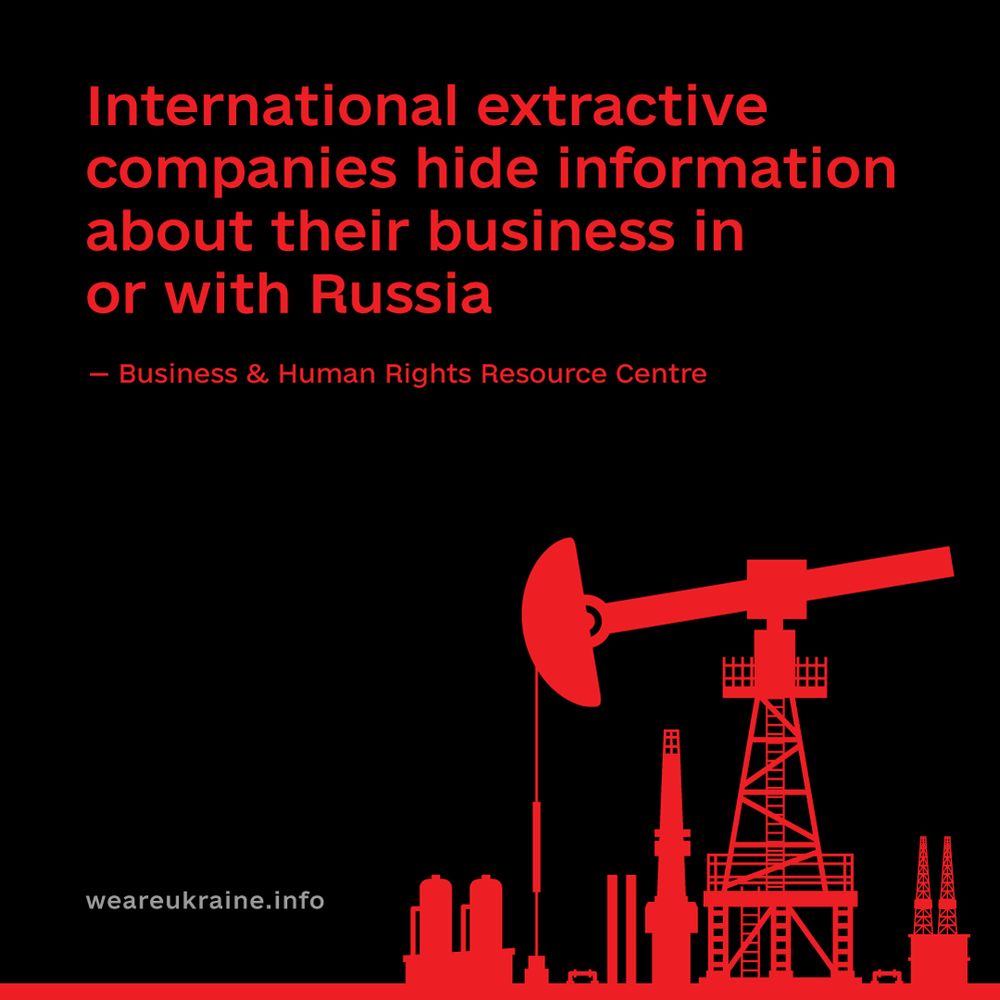
Despite being an initiative created to improve transparency in the extractive sectors, the Extractive Industries Transparency Initiative (EITI) allows its supporting companies to hide information from the public about their operations in Russia or with Russia, and, therefore, the impact they have on funding Russia’s war in Ukraine.
According to the Business & Human Rights Resource Centre (BHRRC) outreach, EITI-supporting companies do not seem willing to disclose information regarding their current and planned activities in Ukraine and/or Russia, their steps towards conducting enhanced human rights due diligence, and the application of a conflict-sensitive approach under the United Nations Guiding Principles on Business and Human Rights (Guiding Principles).
BHRRC approached 23 EITI-supporting companies that have some kind of business connection to Russia: Alcoa, ArcelorMittal, BP, Capricorn Energy, Chevron, Eni, Equinor, ExxonMobil, Glencore, Gunvor Group, Inpex Corp., Kinross Gold, Mitsubishi Materials, NBIM, Norsk Hydro ASA, Orano Mining, Qatar Energy, Repsol, Rio Tinto, Shell plc, Sumitomo Metal Mining, TotalEnergies, Trafigura Group. Out of those companies, only 12 responded (Chevron and Gunvor provided a full response; Eni and Shell — partial responses; Equinor, Glencore, Inpex Corp., NBIM, Orano Mining, and Trafigura — general statements; ArcelorMittal and TotalEnergies promised to get back with the survey response but never did).
The companies are not only unwilling to talk in response to civil society enquiries but are even less eager to disclose information to the public on their own communication platforms. Therefore, the civil society organizations call on the EITI supporting companies to immediately disclose and regularly update information regarding business with Russia to ensure accountability in line with the EITI principles. The disclosed information should include:
- the status of any equity holdings and operations in Russia;
- divestment decisions and processes (including human rights due to diligence);
- payments to the Russian state and Russian state-owned companies, disaggregated by the project; and,
- for commodity trading, the term contracts, other ongoing offtake obligations, and sale-level volume and payment data in line with the EITI guidelines on first-trade transparency.